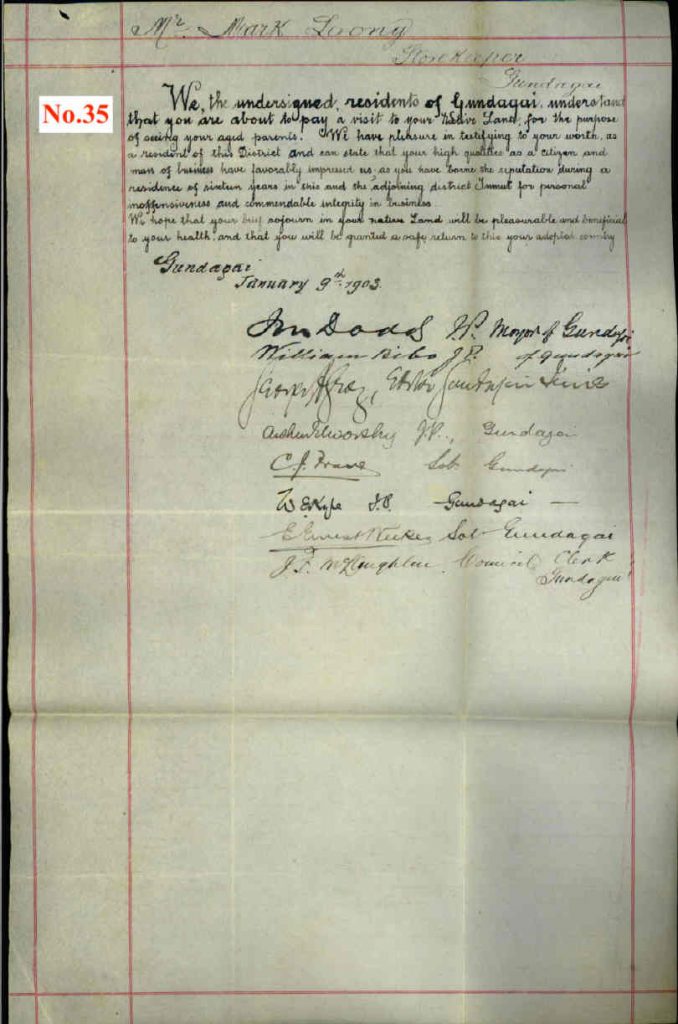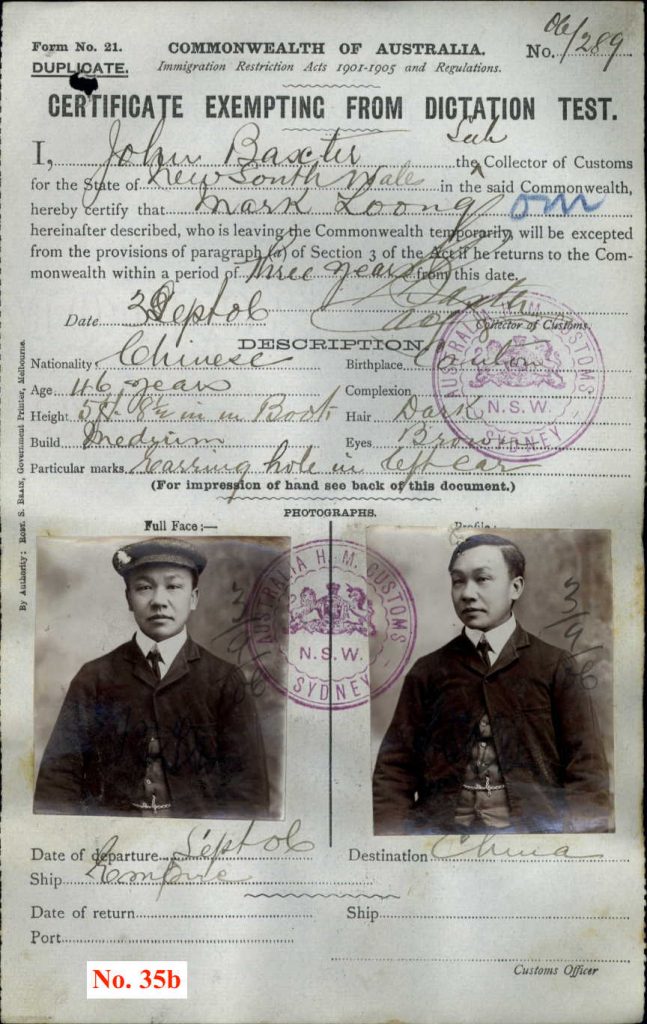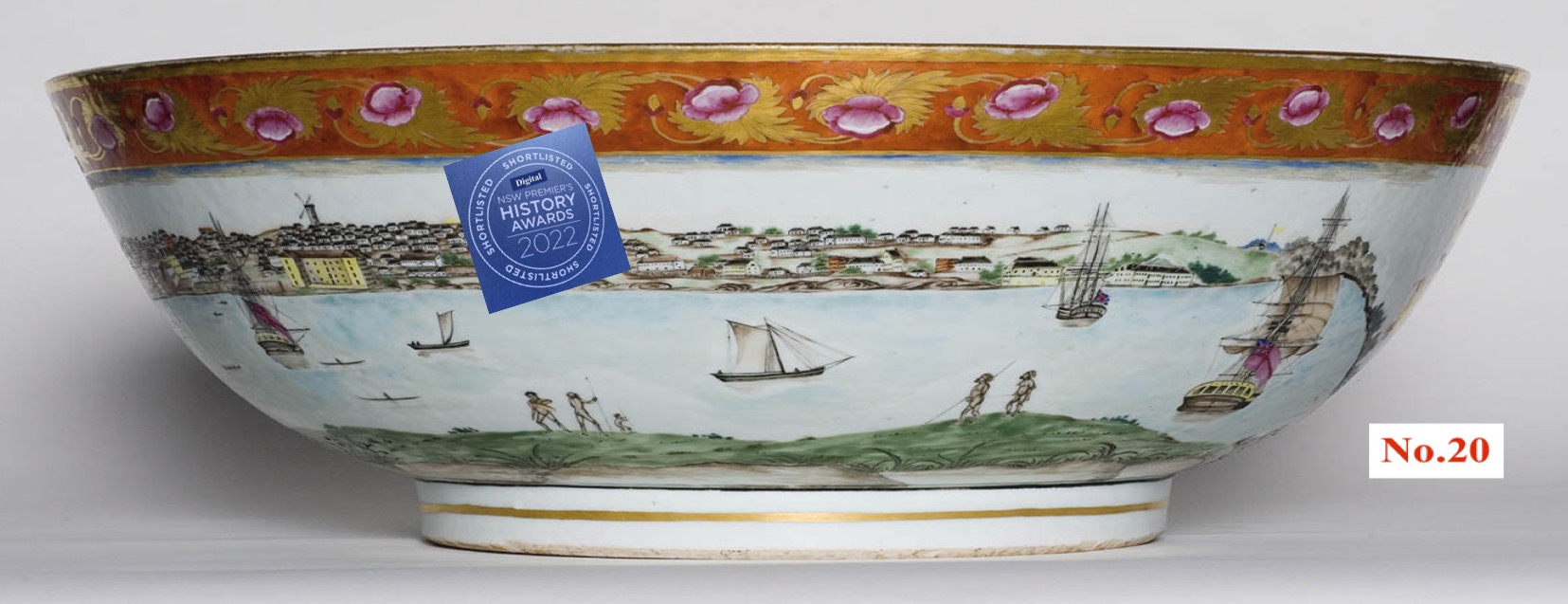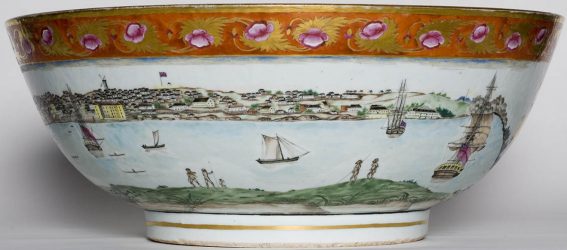“We the undersigned, residents of Gundagai, understand that you are about to pay a visit to your Native Land for the purpose of seeing your aged parents. We have pleasure in testifying to your worth as a resident of this District and can state that your high qualities as a citizen and man of business have favourably impressed us, as you have borne the reputation during sixteen years in this and the adjoining district Tumut for personal inoffensiveness and commendable integrity in business.
We hope that your brief sojourn in your native land will be pleasurable and beneficial to your health and that you will be granted a safe return to this your adopted country.”

This 1903 testimonial was signed by eight fellow Gundagai residents, four of them J.P.s (at a time when that implied a certain level of social status), two solicitors, as well as the Mayor and the Council Clerk of Gundagai. For good measure the whole thing was presented not on paper but on parchment.[1]
Why was Mr. Mark Loong, Storekeeper of Gundagai presented with this relatively elaborate and generous testimonial? The short answer is that he needed evidence of his character in order to apply for a Certificate of Domicile (soon to become a Certificate Exempting the Dictation Test – see No. 1). The Immigration Restriction Act had only just been introduced and Mark Loong was among the first to apply and a standard format for these character letters had not yet evolved.
Nevertheless while many of these letters exist and demonstrate a friendly or warm regard for their subjects, Mark Loong’s is unusual in almost every respect. The parchment, the high status and number of those signing, and the almost anxious desire that he return does seem to imply a very high regard and value placed on Mark Loong as a resident and businessman of Gundagai. The only slightly jarring note is perhaps the reference to his “personal inoffensiveness”. Was he exceptionally meek or is this a hint at conflict with others less inoffensive?
That the environment of Chinese people in Australia was not one of unremitting racism and conflict and that many like Mark Loong were not only able to establish themselves as successful businesspeople but to make friends and become a welcome part of the community is worth noting. This is not to deny the racism and conflict but to recognise that it was always a choice people had and made, as it is today. Then and now those who made/make the choice to be intolerant and discriminatory have little excuse when there is ample evidence of those who made other choices.

“The new store in Sheridin-street, next to Clyne’s shop, will be opened on Saturday next by Mark Loong and Won Num. The shop has been nicely fitted up, and the proprietors are opening up with new and fresh goods, which they are going to sell at cheap rates.”[2]
It is also worth noting the use of the term “sojourn” in this testimonial. It was a common criticism of many Chinese in Australia by white settlers that they planned only to sojourn rather than settle. This has led some historians to attempt to deny the charge or to blame returning to China on racist attitudes. In doing so they perhaps inadvertently deny people their choices. Mark Loong had the choice to go and return, or not, regardless of the views of others and the description ‘sojourner’ need not be a negative one on the say so of those who chose to settle in one place over another.
[1] NAA: SP42/1, C1903/875
[2] The Gundagai Independent and Pastoral, Agricultural and Mining Advocate, 13 March 1901, p.2.

